Research projects
Start date in 2023

When concurrent extreme weather events meet breadbasket regions in escalating inter-regional conflict: Cascading economic impact assessment in the global food market
Researcher: Francesco Bosello, supervisor of MSCA Fellow Nkongho Ayuketang Arreyndip, Length: 15/10/2023 - 14/10/2025, Grant to the UNIVE: € 123.264,00
Russia's invasion of Ukraine caught the world economy by surprise and unprepared. The effects of this invasion, manifested in skyrocketing gas and food prices due to a global shortage, are currently unbearable. This event occurred shortly after the global food market was still recovering from the effects of the extreme summers of 2018 and 2019 and the Covid 19 restrictions. Given the recently reported record-breaking heat waves in the summer of 2022, the cascading economic impact will be even greater than expected. In addition, the frequency and intensity of simultaneous extreme weather events has increased as global average temperatures have risen. These extreme weather events were reported in the summers of 2003, 2006, 2015, and 2018 and were associated with numerous crop failures across the mid-latitude region. The economic impacts of single and simultaneous extreme weather events have been extensively studied in the literature, particularly in the global food web. What remains to be studied is the response of the global food market to cascading weather-geopolitical extremes, especially when conflict regions are major granaries. The goal of the ADRR2023 project is to examine the cascading economic impacts of the 2018 to present summer extremes along with the impact of the Russia-Ukraine conflict on the global food market. We will also model other scenarios involving breadbasket regions likely to be involved in escalating conflict, such as the emerging conflicts between Russia and NATO, Russia and the U.S., China and the U.S., and China and Taiwan, along with projected weather extremes under future warming. This approach and the expected results will help raise awareness of impending economic crises before they occur, and thus provide early preparedness. We will use FAO data and the Acclimate model, an agent-based economic model that has been shown to be robust in simulating the propagation of economic shocks in global supply chain networks.
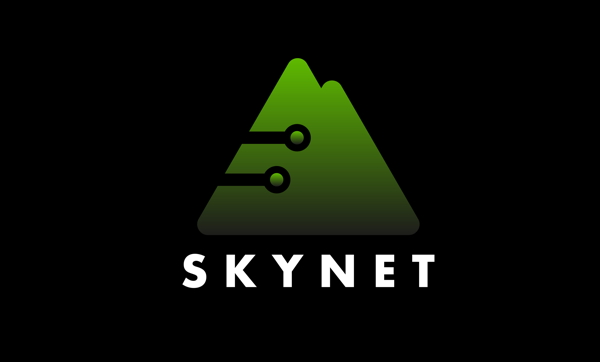
Estimating the ice volume of Earth's glaciers via Artificial Intelligence and remote sensing
Researcher: Carlo Barbante, supervisor of MSCA Fellow Niccolò Maffezzoli, Length: 01/10/2023 - 30/09/2026, Grant to the UNIVE: € 264.859,20
Estimating the ice volume of Earth's glaciers is a grand challenge of Earth System science. Besides being a critical parameter to model their evolution, knowledge of glacier volumes is fundamental to quantify both global sea level rise and available freshwater resources. Under anthropogenic forcing, shrinking glaciers impacts water availability for almost 2 billion people, and contributes to more than 20% of sea level rise. Improving glacier ice volume estimates is now a top-priority for humans both for the present time and for the future climate scenarios. Today, the amount of satellite data is increasing at such a rate that it cannot be efficiently exploited by traditional processing pipelines. The goal of SKYNET is to develop AI deep learning models capable of exploiting the huge amount of available satellite data to predict and refine the ice volumes of all Earth’s glaciers, from continental glaciers to polar glaciers, including those in the periphery of Greenland and Antarctica. SKYNET will be jointly developed by Ca’ Foscari University of Venice, the University of California Irvine and the Jet Propulsion Laboratory.
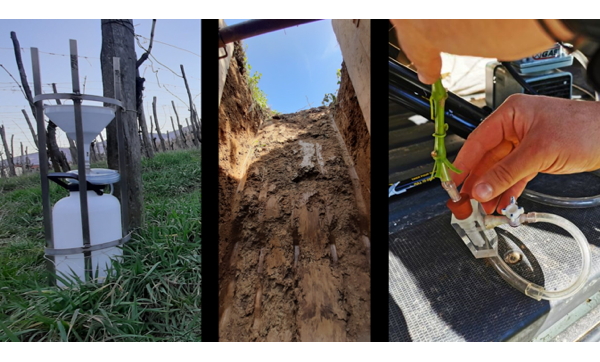
Rational irrigation and soil management in transboundary viticulture
Researcher: Barbara Stenni, Length: 01/10/2023 - 30/09/2025, Grant to the UNIVE: € 99.196,24
In the Italian-Slovenian cross-border area, viticulture constitutes one of the most relevant economic sectors. In this area, the use of irrigation is limited due to tradition and lack of water sources. Due to climate change which is leading to higher temperatures and increasingly frequent droughts, the quantity/quality of the grapes produced, and the survival of the vines are at risk. Irrigation is therefore now considered a necessary relief practice and it has become essential to determine good water management practices based on sustainability principles.
During the previous Acquavitis project concerning three important wine-growing areas (Vipacco Valley, Carso and Bassa Friulana), innovative irrigation and soil management protocols were developed to optimise the water balance in the vineyard using an ecosystem approach. IRRIGAVIT wants to consolidate and extend these resilience strategies in new areas of high interest (Colli Orientali, Brda) to propose these practices to key policy makers, with the aim of drafting new guidelines that can be applied by winegrowers.
The Ca' Foscari University of Venice will analyse the isotopic composition of rainfall water, soil and xylem saps and integrate the irrigation model with the dynamics of water uptake in vineyards.
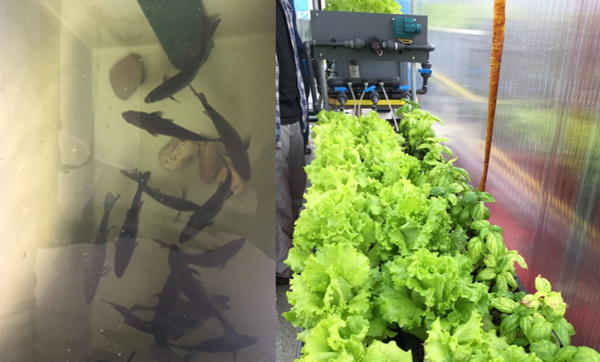
Beyond Bluegrass - Strengthening sustainable agri-food through aquaponics
Researcher: Roberto Pastres, Length: 01/09/2023 - 31/08/2025, Grant to the UNIVE: € 253.972,00
The agri-food sector in the programme area is going through a very difficult time, revealing its fragility and vulnerability. Therefore, it is crucial to develop circular and resource efficient food production systems, which are less dependent from energy and raw material and can provide locally sourced high quality sustainable products. In this context, BeBlue - Beyond Bluegrass aims at capitalizing the achievements of the BLUEGRASS project, which successfully introduced in the programme area aquaponics, a sustainable and innovative food production technology based on circular economy principles. Aquaponics combines soilless agriculture and fish farming in a single recycling system that optimizes the use of natural resources needed to produce fish feed. BeBlue aims to disseminate aquaponics through actions aimed at:
- facilitating the management of aquaponic systems, through digitalization;
- attracting investments, by developing tools for assessing environmental and economic sustainability, which can be used in the preparation of business plans;
- extending the range of products, by combining the production of marine fish with that of salicornia, a plant that can tolerate high salinity, and macroalgae;
- adding value to products, by informing consumers, large-scale retailers and operators in the HORECA sector;
- including aquaponics in urban regeneration plans.
Cross-border cooperation is a qualifying and essential element of the project, which will allow the achievement of the project objectives: BeBlue partners will ensure the integration of technical-scientific expertise, connections with operators/stakeholder and capacity of involving them in participatory processes.
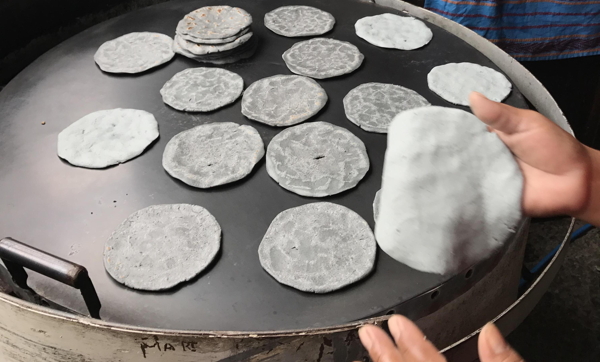
Cuisine(s) of the Ancient Maya across the Lowlands: Reconstructing Plant Diets through Molecular and Imaging Approaches
Researcher: Antonio Marcomini, supervisor of MSCA Fellow Clarissa Cagnato, Length: 01/09/2023 - 31/08/2025, Grant to the UNIVE: € 188.590,08
COMAL aims at using novel analytical and characterization techniques never applied before on archaeological materials from Central America to bring to light which plants were consumed and the different ways in which these were processed by the ancient Maya that inhabited the tropical forests of the Maya Lowlands in what is now Mexico and Guatemala. Clarissa Cagnato will carry out her research at the Department of Environmental Sciences, Informatics and Statistics (DAIS) with Prof. Antonio Marcomini, and with a secondment at the Elettra Synchrotron in Trieste. COMAL will expand our knowledge on ancient dietary practices and will impact Maya people (direct descendants of the ancient Maya whose culture was impacted by the Spanish conquest in the 16th century) by shedding new light on their food heritage and the sustainability of their traditions.
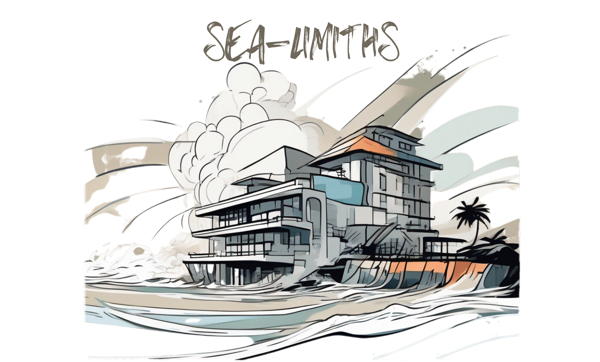
Sea Level Rise Impacts on Italian Hospitality
Researcher: Francesco Bosello, supervisor of MSCA Fellow Vilane Gonçalves Sale, Length: 01/06/2023 - 31/05/2025, Grant to the UNIVE: € 188.590,08
A 30cm sea level rise could damage most of the world's beaches by 2100. Data shows 1500 more km of eroding beaches compared to stable beaches along the Italian Mediterranean coast. Sandy beaches vital for hospitality dominate Italy's coasts but are deteriorating. Although crucial for tourism, projected beach losses from climate change are often excluded from strategies, potentially limiting their effectiveness. The SEA-LIMITHS project assesses the economic and environmental impacts of sea-level rise on the coastal hospitality sector using AI, adding to limited research on climate change effects. This project fills a critical gap by analyzing the consequences of sea level rise on sandy beaches and beach hospitality losses from erosion and flooding in two key coastal regions, Veneto, and Emilia-Romagna. Hosted by the prestigious Department of Environmental Sciences, Computer Science and Statistics at Ca' Foscari University of Venice, the study is supervised by renowned professor Francesco Bosello, an expert in the field and coordinator of the Climate Change Economic Analysis of Climate Impacts and Policy division at the Euro-Mediterranean Center on Climate Change. The research provides necessary evidence on sea level rise impacts to inform coastal management and climate change adaptation in the hospitality sector.
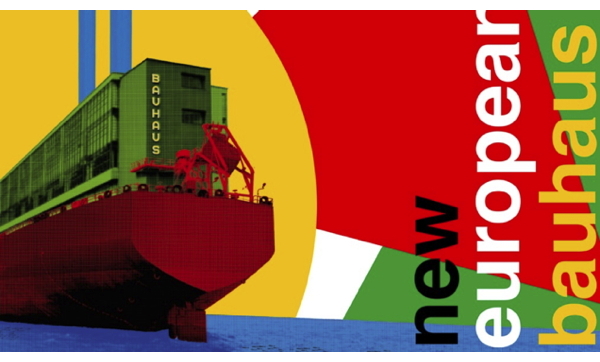
Bauhaus of the Seas Sails
Researcher: Fabio Pittarello, Length: 01/01/2023 - 31/12/2025, Grant to the UNIVE: € 510.600,00
The Bauhaus defined the role of design in the 20th century by combining art and architecture with industry and construction embedded in a political, economic and social vision of the world. The New European Bauhaus (NEB), promoted by the European Commission, aims at raising a movement towards implementing the Green Deal based on sustainability, social inclusion, and beauty.
This means realising regenerative approaches inspired by nature that enrich our experiences through creativity, art, and culture, embracing diversity to promote inclusive, accessible spaces where the dialogue between diverse cultures, disciplines, genders, ethnicities, and ages becomes an opportunity to imagine a better future for all.
In response to the challenge of the climate crisis, the Bauhaus of the Seas (BoS) proposes a NEB mobilisation around the most important natural space in the EU and the world: the sea.
The BoS aims to demonstrate solutions for climate neutrality with a particular focus on coastal cities and will offer opportunities to engage with communities for an environmentally sustainable, socially fair, and aesthetically appealing transition.
Seven lighthouse demonstrators will be located in different aquatic ecosystems: the Atlantic Tagus River Estuary (Lisbon/Oeiras), the Lagoon in the Adriatic (Venice), the Gulf of Genoa (Genoa), the Atlantic Rhine–Scheldt Delta (Rotterdam), the Öresund Strait (Malmö) and North Sea / Elbe River (Hamburg). They will serve as pilots for the broader implementation of the NEB under the vision of the BoS.
Start date in 2022
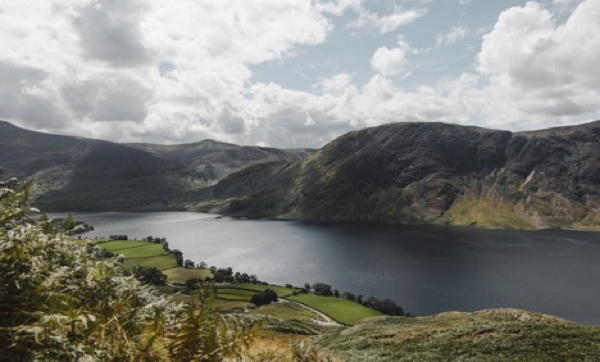
Strategic Investments in Mitigation, Adaptation and Resource Recovery Innovations at Basin Scale
Researcher: Carlo Carraro, supervisor of MSCA Fellow Maksud Bekchanov, Length: 01/11/2022 - 31/10/2024, Grant to the UNIVE: € 172.750,08
Increased frequencies of natural disasters (droughts, flooding, and eutrophication) due to global warming and related resources scarcities necessitate timely and pro-active actions of mitigation, adaptation, and recycling. Due to occasional and unexpected occurrence of the catastrophes and accumulative adverse effects of disturbing environmental systems which come into surface in the long run, short-sighted financial and investment policies that are considered for 5-10 years often overlook these effects. Unexpected flooding in spring and temperature anomalies during summer in Europe, increased forest fires in tropical areas within the last years also indicated unpreparedness of the financial and infrastructure systems to cope with such disruptions. Within the SIMARIS project, we aim at developing a long-term macro-economic growth model integrated with water-land-energy systems. This model allows for analyzing strategic investments to improve water, land and energy use efficiency and strengthen resilience of the infrastructural systems to deal with resource scarcities and natural catastrophes. The model will be implemented to the case of Central Asia where water and energy scarcity and degradation of lands are major issues that threaten livelihoods and prevent sustainable economic growth. In addition to numerous contributions to water-economic modeling field, this project therefore effectively contributes to improve environmental protection and investment policy making in the study region and beyond.
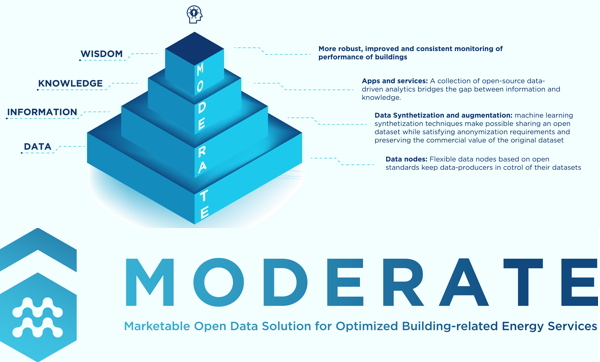
Marketable Open Data Solutions for Optimized Building-Related Energy Services
Researcher: Wilmer Pasut, Length: 01/06/2022 - 31/05/2026, Grant to the UNIVE: € 111.957,50
Lack of interoperability between building datasets is a key issue MODERATE aims to address by developing an open marketplace where data can be reliably shared between data owners. In a next step, the platform will allow for users to make use of different services to analyse the available data, gain insights on the building stock and create a long-term impact for the management of buildings.
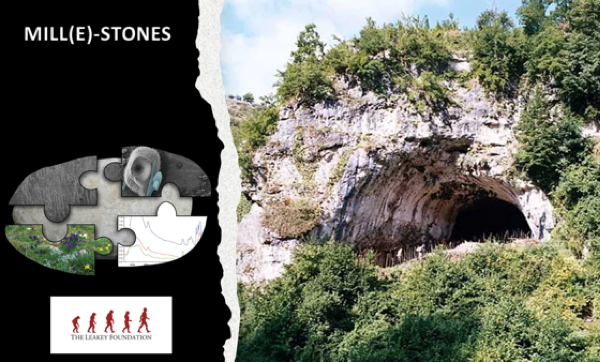
Ground stones and plant food processing during MIS 3 in the Caucasus
Researcher: Elena Badetti, Length: 01/04/2022 - 31/03/2023, Grant to the UNIVE: $ 24.918,00
Mill(e)Stones was funded through a competitive call by The Leakey Foundation (USA), one of the world’s leading research agencies that promotes the study of human evolution. The innovative topic proposed by Mill(e)Stones is the multidimensional investigation of the role played by perishable materials, such as plants, in supporting Homo sapiens' successful adaptive strategy during a crucial time span - the MIS 3 (Marine Isotopic Stage 3, 60-25 ka) - for the colonization of western Eurasia, when several climatic downturns occurred. The research focused on a biodiversity hotspot located in the corridor between the Black Sea and the southern rim of the Caucasus, historically known as the Pontus Euxinus or Pontic Steppe. The study examined Early Upper Palaeolithic sites in the Imereti region and specifically the 6 ground stones retrieved in layer D of Dzudzuana cave, excavated by O. Bar-Yosef (Harvard University) in collaboration with the Georgian National Museum (Tbilisi, Georgia), where the stones were accessed for the study.The main focus of Mill(e)Stones is to study an almost untouched type of stone tool – unmodified pebbles, also called macrolithic tools, that were used as ground tools. Specifically, the modifications induced on the stone surfaces by repetitive mechanical processing of plant’s storage organs like tubers, fruits and seldomly seeds, left residues entrapped on the areas that were used. The project aims at characterizing starch grains and fibers by integrating imaging (optical microscopy and SEM), spectroscopy (FTIR and Raman), and gas chromatography-mass spectrometry (GC-MS) techniques. Moreover, Mill(e)-Stones will enable the creation of a reference collection of plants that were available in the Pontic Steppe during the MIS 3 and comprises a wide range of species that could have been processed for dietary carbohydrates and fibres. Although plant materials were plentiful in the diverse environments where early waves of modern humans roamed in their native Africa, they are rarely reported in archaeological records due to their vulnerability. Therefore, our study is designed to demonstrate that early waves of Homo sapiens, a tropical species, used ground stone tools to transform highly versatile raw materials like plants through complex processing that may also involve pre-processing through thermal treatments. Mill(e)Stones final goal is to provide evidence for the effectiveness of knowledge-intensive strategies for utilizing plants resources. Additionally, we will explore how the transformation of plant fibers into cordage and nets may have enhanced the efficacy of the plants resources managing, resulting in the overall increased gathering and transformation of different edible sources of food.
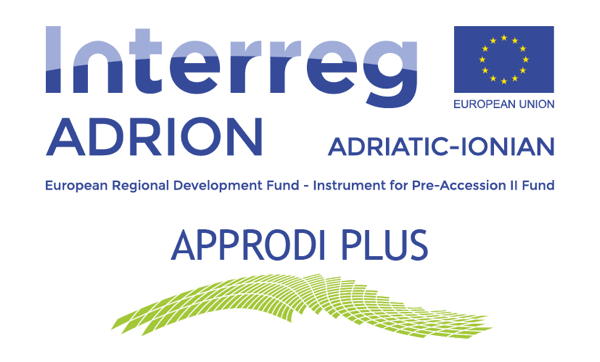
Open and Resilient Radio Access Network for Next Generation Wireless Backhauls
Researcher: Elisabetta Zendri, Length: 01/01/2022 - 30/06/2022, Grant to the UNIVE: € 33.200,00
The overall objective of the APPRODI PLUS project is to improve and extend the impact of the original APPRODI project. In particular, will enhance three aspects:
- the definition of an interactive map of the historic ports of the Adriatic Sea. The map will be interactive, providing points of interest and hypertexts that make the tool more attractive to the user and easy to use;
- the definition of a memorandum of understanding of the ports that intend to adopt and implement its provision;
- improving the knowledge of the sites as cultural and economic assets of the territory. Public events will be held in each country, mainly targeting the public active in the tourism chain, public and private.
UNIVE will participate in the project by conducting meetings and workshops with stakeholders involved in managing and enhancing the areas of interest. In parallel, online training sessions will be carried out, particularly for operators of the administrations of historic ports involved in the economic and tourism development of the sites. The aim is to assess the different tourism potentials that can be improved (and how); understand the impact of the pandemic on port tourism activities, and define the historical, geographical and cultural aspects of the port and its surroundings.
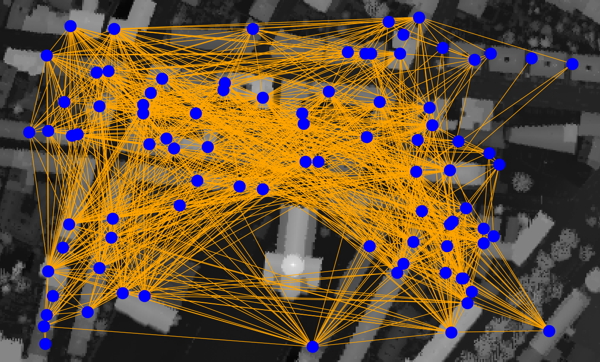
Open and Resilient Radio Access Network for Next Generation Wireless Backhauls
Researcher: Leonardo Maccari, Length: 01/07/2022 - 07/12/2022, Grant to the UNIVE: € 46.134,00
Possibly, the greatest innovations introduced by 5G will be invisible to the users and reside in the open, dynamic, intelligent architecture that runs the network. However, we can only imagine a tiny bit of the complexity of future networks, not enough to base current research on realistic assumptions. This project aims at merging the data-based network design carried on by Ca’ Foscari University of Venice (Italy) with the advanced experimental facilities by Northeastern University (USA) to study the backhaul network of 5G and beyond, which will radically change compared to previous generations of mobile networks. We will produce scientific results, open source code, and open data that will contribute to shape this research field in the years to come.
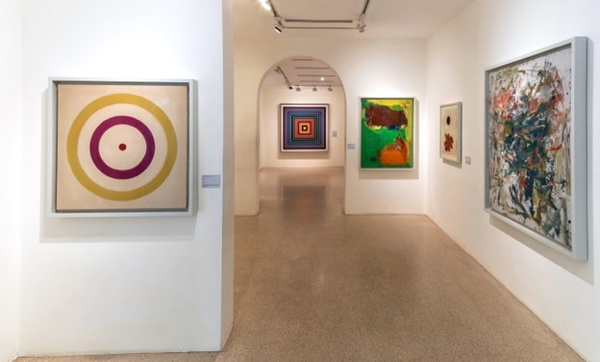
GREen ENdeavor in Art ResToration
Researcher: Elena Semenzin, Length: 01/10/2022 - 30/09/2025, Grant to the UNIVE: € 137.751,00
GREENART is a Horizon Europe funded project which involves 28 international partners. The project aims at identifying and producing safe and effective solutions for the conservation and restoration of works of art based on materials with a low environmental impact derived from renewable natural source or from recycled waste. The project proposes new solutions based on green and sustainable materials and methods: 1) protective coatings based on green materials from waste and plant proteins; 2) foams and packaging materials made by biodegradable/compostable polymers from renewable sources; 3) consolidants based on natural polymers from renewable sources; 4) gels and cleaning fluids inspired by the most advanced systems currently available to conservators, improving them according to green and circular economy; 5) green tech solutions for monitoring cultural heritage assets non-invasively against pollutants and environmental oscillations.
The safe-by-design approach will be used from the early design stages to verify the product safety.
In addition, product performance will be evaluated throughout the entire life cycle, in line with Life Cycle Assessment principles, which will be used to assess both environmental sustainability and economic feasibility.
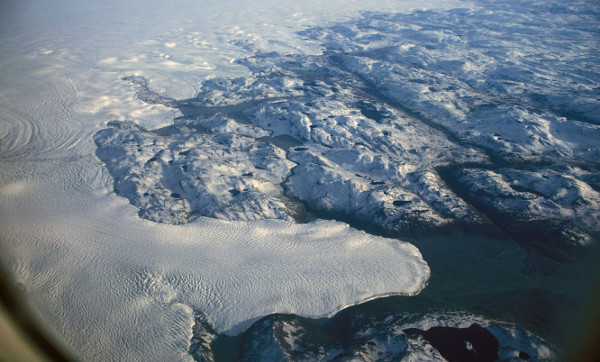
Micron-scale Ice Core Reconstruction of Abrupt Climate Changes
Researcher: Carlo Barbante, supervisor of MSCA Fellow Pascal Bohleber, Length: 15/01/2022 - 14/01/2025, Grant to the UNIVE: € 269.002,56
Understanding past abrupt climate change ("ACC") in the Arctic is critical for understanding current climate change and for understanding its future developments. The underlying processes, however, are not yet fully understood. Within their glacio-chemical stratigraphy, Greenland ice cores store important paleoclimatic information that can be investigated through proxies of various types. The key to fully exploiting this unique archive is the very high temporal resolution of the measurements, which will allow information to be obtained at a level of detail not accessible until now. Laser-Ablation Inductively-Coupled Plasma Mass Spectrometry (LA-ICP-MS) is a key technology in this respect, offering micro-destructive ice core impurity analysis at micron scale-resolution. At this high resolution, however, it is pivotal to avoid misinterpretation by taking into account interaction of impurities with the ice crystal matrix.
MICRO-CLIMATE brings together, for the first time, two state-of-the-art LA-ICP-MS setups (at the Universities of Maine and Venice) to realize what one partner could not achieve alone: high-throughput AND high detail analysis for constraining signal preservation. With this approach, Greenland ice cores are investigated to decipher the timing of changes in marine, terrestrial and atmospheric proxies, before, during and after abrupt transitions. Ultimately, the project will advance our understanding of how to interpret ice core geochemistry at high-resolution and produce a refined LA-ICPMS application that can be employed in upcoming ice core projects for paleoclimate reconstructions.
Start date in 2021

Access control policies verification and inference
Researcher: Pietro Ferrara, Length: 01/10/2021 - 30/09/2024, Grant to the UNIVE: € 67.957,87
AWS IAM access control policies specify what AWS cloud resources are accessible by what identities. AWS SDKs allow developers to programmatically access these resources through applications that can be run by different identities. However, what resources are accessed and how depend on the (mostly string) values computed by the application. Therefore, forecasting what access control policy is required by a given application is rather complex.
In this project, we apply abstract interpretation techniques to over approximate the string values computed by these applications, and then infer, validate or IAM the access control policies.
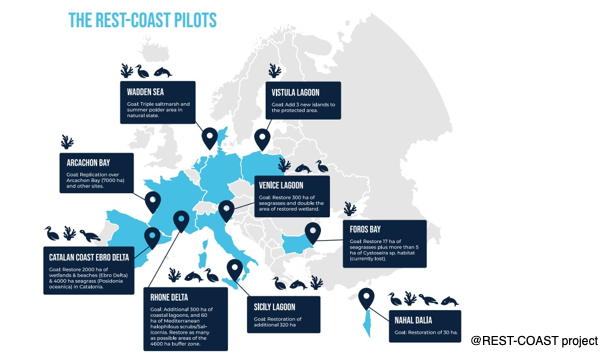
Large Scale RESToration of COASTal ecosystem through rivers to sea connectivity
Researcher: Andrea Critto, Length: 01/10/2021 - 31/03/2026, Grant to the UNIVE: € 130.000,00
By overcoming present technical, economic, governance and social barriers to restoration upscaling, REST-COAST will develop the large-scale river-coast connectivity and increase the nearshore accommodation space for the resilient delivery of coastal ecosystem services (ESS). The selected ESS (risk reduction, environmental quality and fish provisioning) touch urgent coastal problems such as the erosion/flooding during recent storms or the accelerating coastal habitat degradation that seriously affects fisheries and aquaculture. By enhancing these ESS under present and future climates at 9 Pilots that represent the main EU regional seas (Baltic, Black, North, Atlantic and Mediterranean) we shall increase the commitment of citizens, stakeholders and policy makers for a long-term maintenance of restoration. Such commitment will go together with a transformation of governance and financial structures, supported by evidence-based results on restoration benefits for the welfare of coastal societies and assets. This transformation will build upon the results from hands-on restoration at the Pilots, steered by the multidisciplinary project advances.
Within the REST-COAST project, UNIVE will participate in the review of indicators useful to monitor the performance of Nature-Based Solutions (NBS) in terms of biodiversity and ecosystem services benefits for the Venice lagoon pilot, and in the identification of opportunities for the scaling up and out of coastal restoration activities (WP1). Moreover, UNIVE will apply environmental risk assessment approaches for assessing the impact of climate change and other anthropic pressures on water quality and related ecosystem services (WP2). Finally, UNIVE will analyse and compare the performance of selected NBS measures in the Venice Pilot areal, to support the design of a methodology for NBS upscaling (WP4).
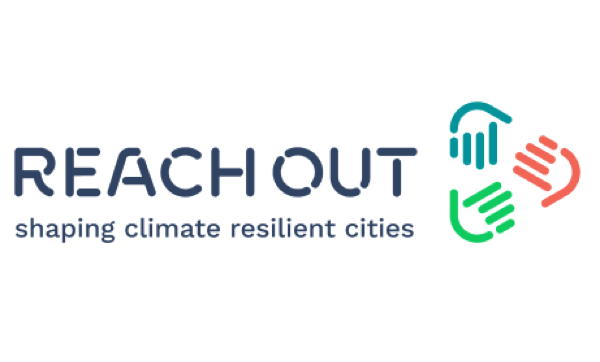
Resilience in Europe through activating City Hubs reaching out to Users with Triple-A Climate Adaptation Tools
Researcher: Francesco Bosello, Length: 01/10/2021 - 31/03/2025, Grant to the UNIVE: € 30.000,00
REACHOUT is a H2020 project with the aim to advance Climate Services for urban environments in 7 City Hubs across Europe, developing adaptation strategies integrated in climate resilient urban development.
The prime objective of REACHOUT is to bridge the last mile in climate service delivery to better support all European cities in building resilience to climate change by a pragmatic approach that builds upon existing achievements and addresses main barriers for uptake.
REACHOUT project builds next level climate services that supports adaptation decision making in 7 City Hubs. These hubs serve as living labs for co-creation of the services with government, citizens and the private sector and serve as accelerators for further regional and national upscaling of the use of these services. The hubs represent a regionally diverse portfolio of climate vulnerabilities and adaptation needs across stakeholders. In each hub REACHOUT has a direct beneficiary partner that has already internalized adaptation planning and has strong institutional connections and relationships with other municipalities, towns and organizations in their periphery. To ensure sustainability beyond the lifetime of the project close cooperates with existing climate service platforms and develops business models for implementation of the services from the start.
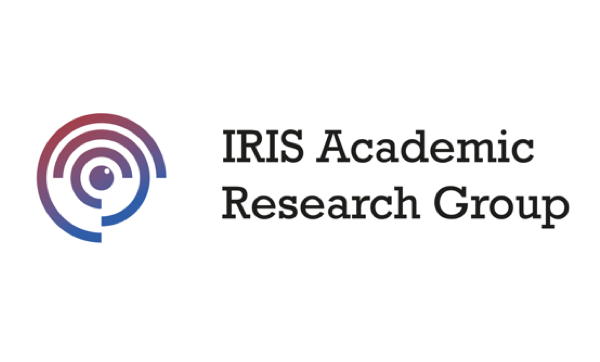
GLOBAL HEALTH SECURITY ACADEMIC RESEARCH - IRIS - COVID-19 Vaccine Confidence and Infodemics Initiative
Researcher: Fabiana Zollo, Length: 12/03/2021 - 31/03/2023, Grant to the UNIVE: € 619.999,99
The COVID-19 pandemic is not just a health problem – it is also fueling an infodemic on an unprecedented scale. Since the beginning of the COVID-19 outbreak, the digital media ecosystem has been flooded with “alternative explanations” and conspiracy theories. Purveyors of conspiracy theories emerge in uncertain times when they have audiences eager for some kind of explanation for unexplained phenomena, such as the COVID-19 pandemic. As a result, the public’s attention can shift from medical/government advice towards alternative explanations which are dangerous and can have negative effects on societies, impacting the ways in which people process and act upon information. In the context of COVID-19, mis- and disinformation poses a severe risk to the acceptance and uptake of vaccines as it can seed doubts about the importance, safety, or effectiveness of vaccines and undermine public trust in vaccines, science and in official institutions.
IRIS Academic is a research group – named after a Greek goddess (“Iris”) of communications and messages – dedicated to understanding infodemics and promoting healthy information ecosystems. It is a collaborative project founded by some of the world’s leading researchers and institutions who are driving cutting-edge research and multidisciplinary methodologies across four topic pillars: susceptibility to misinformation, interventions to counter misinformation, vaccine hesitancy, and managing infodemics. Within each of these pillars, the researchers are working to identify and define measures, drivers and solutions that help to understand relationships between susceptibility to misinformation, the spread of misinformation, vaccine hesitance and effective interventions to protect people from misinformation.
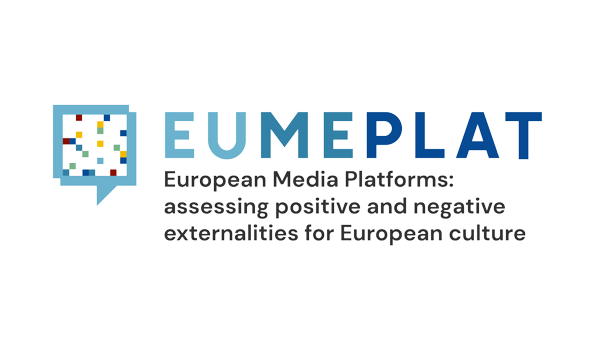
EUropean MEdia PLATforms: assessing positive and negative externalities for European culture
Researcher: Fabiana Zollo, Length: 01/03/2021 - 29/02/2024, Grant to the UNIVE: € 223.162,50
The project aims at analyzing the role of media platforms in fostering or dismantling European identity. The assumption is that European dimension has rarely been dominant in media history. In particular, the project focuses on the “platformization” process, as the rise of new closed Web architectures, to inquire its positive and negative externalities, functional and dis-functional consequences.
Positive externalities are beneficial to society at large. Detecting the insurgence of negative effects is a fundamental duty for scholars and policy-makers, as externalities of both kinds tend to reinforce themselves, giving rise to positive loop feedbacks and critical vicious circles. Negative externalities include misinformation, toxic debate, exclusion of independent voices; positive externalities encompass European co-productions, or practices able to bring people out of the information bubble.
A multidisciplinary analysis of platformization will be conducted in three fields: news, video sharing, media representations, with the final goal to offer both a theoretical and empirical synthesis. The research question is whether or not new platforms – YouTube, Netflix, NewsFeed - are making European culture more European, based on indicators related to production, consumption and representation. Patterns will be detected by comparing national, regional and European and level.
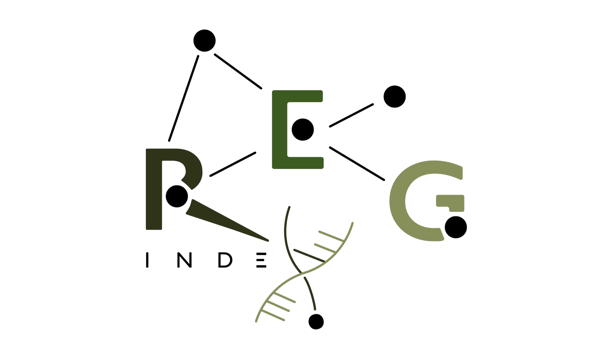
Compressed Indexes for Regular Languages with Applications to Computational Pan-genomics
Researcher: Nicola Prezza, Length: 01/09/2022 – 31/08/2027, Grant to the UNIVE: € 1.385.743,00
The research project, funded by the Horizon Europe programme with an ERC starting grant, tackles the problem of organizing big and structured data sets in order to reduce their space usage and accelerate searches inside them. On a high level, the idea is very similar to the functioning of a common dictionary: it is much easier to search a term in a dictionary rather than in a book because, in the former, terms are sorted alphabetically. The REGINDEX project extends this simple idea to much more complex data: labeled graphs (or, equivalently, regular languages). While sentences in a book are formed by consecutive words, in a labeled graph "jumps" between (even very distant) words are permitted. Even if this makes the problem of searching sentences in a graph much more complicated, the project will show that the idea of sorting still applies. The developed techniques will find immediate applications in the design of algorithms for searching mutations inside sets of genomes. The DNA of two human beings is never perfectly identical. As a matter of fact, the differences existing among all human genomes can be modeled as a very large labeled graph: a pangenomic graph. The problem of searching for a particular mutation in the data set translates to that of searching a "sentence" (a path) inside this graph.
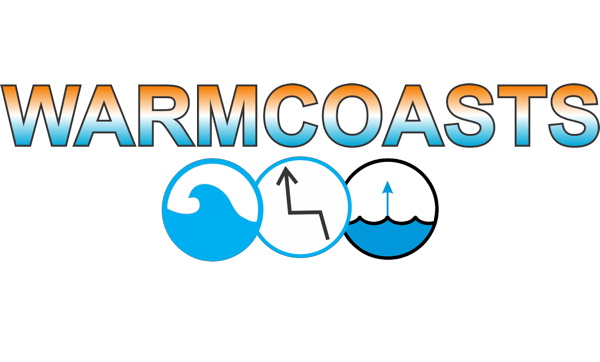
Sea level and extreme waves in the Last Interglacial
Researcher: Alessio Rovere, Length: 01/11/2021 – 31/03/2025, Grant to the UNIVE: € 883.353,75
The Last Interglacial (125 000 years ago) was the last period of the Earth’s history when climate was slightly warmer than pre-industrial. During the Last Interglacial, ice sheets were smaller and global mean sea level was higher than today. For this reason, this period of time represents a process-analog for future warming. Sea level and ice sheets dynamics during the Last Interglacial period are often regarded as indicators for the sensitivity of ice sheets to future melting. However, there are still significant gaps in our understanding of last interglacial sea level and extreme waves, that we aim to fill with WARMCOASTS. Specifically, we will concentrate on three main research goals:
- Advancing current knowledge of last interglacial global mean sea level and associated uncertainties
- Investigating the existence and pattern of sea level fluctuations within interglacials
- Test the hypothesis that last interglacial extreme wave events were stronger than today.
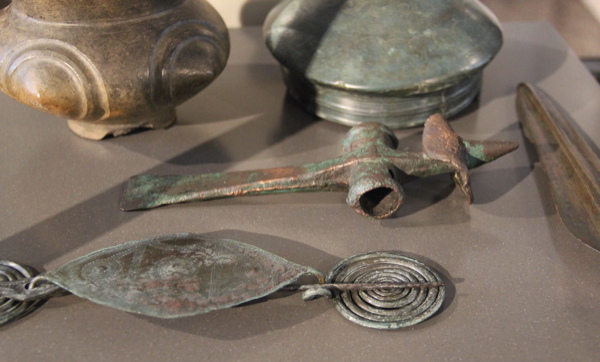
GEOarchaeology of DAily Practices: extracting bronze age lifeways from the domestic stratigraphic record
Researcher: Dario Battistel, Length: 01/10/2021 – 30/09/2026, Grant to the UNIVE: € 80.000,00
What was daily life like in the European Bronze Age? In contrast to large-scale narratives based on artefacts, often prestige items from funerary contexts, this project focuses on the practices of daily domestic life, recorded in the sediments upon which it took place. These constitute the domestic stratigraphic record. This project, therefore, shifts the scale and the object of archaeological investigation, and aims at bringing interdisciplinary scientific analyses into dialogue with anthropological understandings of lifeways and households. Its main objective is the formulation of an innovative narrative of the Bronze Age addressing social, economic, and environmental aspects of a culturally interconnected region of Europe. The daily practices and life histories of bronze age people will be the pixels of this new picture that challenges previous depersonalized narratives relying on material culture. The region between the Carpatho-Danubian basin, the Balkans, and northern Italy was selected due to its important cultural interactions during the Bronze Age. Ten key archaeological sites in six European countries constitute the project’s database. Its innovative interdisciplinary approach integrates geoarchaeology (micro-stratigraphic analysis), organic chemistry (biomarkers) and archaeo-botany (phytoliths, seeds, fruits, and charcoal) to reconstruct with unprecedented accuracy the daily practices from domestic stratigraphy. This information will be compared with the story told by material culture and integrated with local paleo-environmental records. The project, in fact, challenges also previous reconstructions that called in environmental mega-events (volcanic eruptions, glacial advances, aridity events) to aprioristically explain broad cultural phenomena of the Bronze Age. Their inherent complexity can only be faced by crystallizing detailed micro-histories and site-specific environmental reconstructions into a broader synthesis based on hard scientific data.
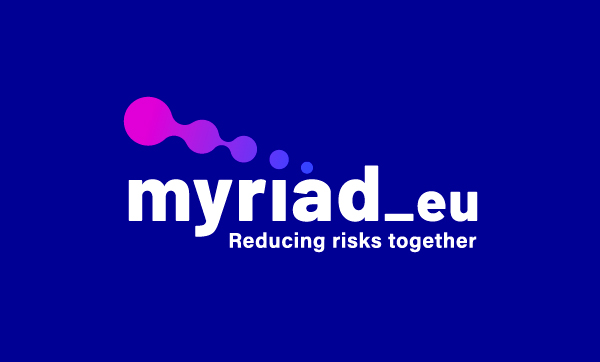
Multi-hazard and sYstemic framework for enhancing Risk-Informed mAnagement and Decisionmaking in the E.U.
Researcher: Andrea Critto, Length: 01/09/2021 - 31/08/2025, Grant to the UNIVE: € 30.000,00
MYRIAD-EU (Multi-hazard and sYstemic framework for enhancing Risk-Informed mAnagement and Decision-making in the EU) is an EU-Horizon2020 funded project started in September 2021 that will run until 2025. It is conducted in collaboration with 17 partners from research institutes, NGOs, industry, and stakeholder representatives from all over Europe.
MYRIAD-EU’s vision is to catalyse the paradigm shift required to move towards a multi-risk, multi-sector, systemic approach to risk management. Our aim is that by the end of MYRIAD-EU policy-makers, decision-makers, and practitioners can develop forward-looking disaster risk management pathways that assess trade-offs and synergies across sectors, hazards, and scales.
UNIVE will develop risk analysis approaches based on machine learning methods for the assessment of environmental risks associated with the collection of water resources and climate change in the Veneto Region, in collaboration with the partner CMCC (Euro-Mediterranean Center on Climate Change).
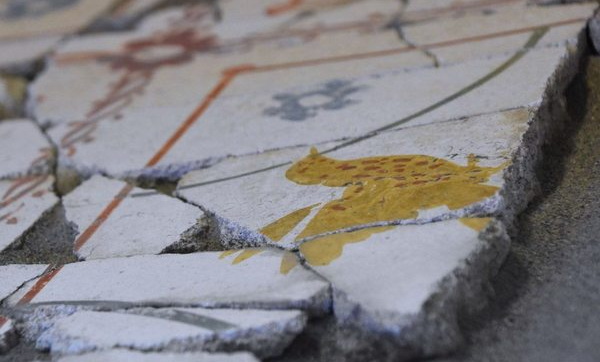
RePAIR - Reconstructing the Past: Artificial Intelligence and Robotics Meet Cultural Heritage
Researcher: Marcello Pelillo, Length: 01/09/2021 - 28/02/2025, Grant to the UNIVE: € 586.066,00
The goal of the RePAIR project is to develop a ground-breaking technology to virtually eliminate one of the most labour-intensive and frustrating steps in archaeological research, namely the physical reconstruction of shattered artworks. By developing and integrating novel technologies in the fields of robotics, computer vision and artificial intelligence, we envisage a future where archaeology can deal effectively with reconstruction problems at an unprecedented scale and be able to bring back to life ancient artworks and masterpieces which would otherwise remain broken into pieces forever. Specifically, we aim to develop an intelligent robotic system which will autonomously process, match and physically assemble large fractured artefacts at a fraction of the time it takes humans to do. Our system will be tested over iconic case studies from the UNESCO World Heritage site of Pompeii, and one tangible outcome of the project will be to restore two world-renowned frescos which are now shattered into thousands of fragments and forgotten in storerooms.
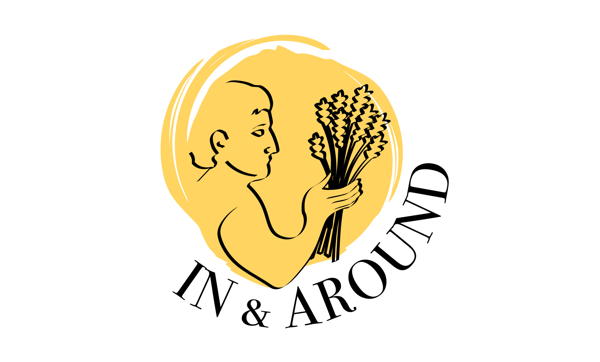
INAndAROUND - Patterns of land-use and human mobility in a time of climate changes (Italy, 6th to 10th cc.)
Researcher: Annamaria Pazienza, Length: 15/08/2021 - 14/09/2024, Grant to the UNIVE: € 269.002,56
The period from the 6th- to 11th- century in Italy is one of the most profound political and social laboratories in European history. Centred on this region and period, the In&Around project aims at exploring the interaction between climate variability and human agency with a lens towards the management of the environment and in the light of shifting political regimes. By way of the innovation-through-interdisciplinary approach, it combines new long-duration and high-resolution climate records from recently cored lake sediments in Central Italy with data derived from written sources and already extant climate reconstructions, thus offering an important contribution to an expanding field of study, and capturing details on past issues of contemporary significance, like climate change, human mobility and workforce relocation.

MAREA - MAtchmaking Restoration, Ecology and Aquaculture
Researcher: Camilla Bertolini, Length: 01/07/2021 - 30/06/2023, Grant to the UNIVE: € 171.473,28
Bivalve aquaculture is considered to be one of the most sustainable practices, although some potentially negative environmental impacts arising from high deposition rates of organic deposits on the seabed can be identified.
To limit these impacts it is possible to add to the classic shellfish culture a restoration approach . This can bring additional positive effects for biodiversity and returns both economical and cultural.
The projects aims to optimise these positive effects integrating restoration and aquaculture with the reintroduction of native oysters reefs (Ostrea edulis) , on the space of seabed underneath suspended mussel farms and using oyster seeds settling in the area to begin a new market for the native oyster (economic benefit) and leaving the restored reef intact (ecological benefit).
This will combine a model and experimental approach in a pilot site in the northwest Adriatic, where extensive reefs were present. Lastly , climate change scenarios will be used to identify the use of this approach in the long term.
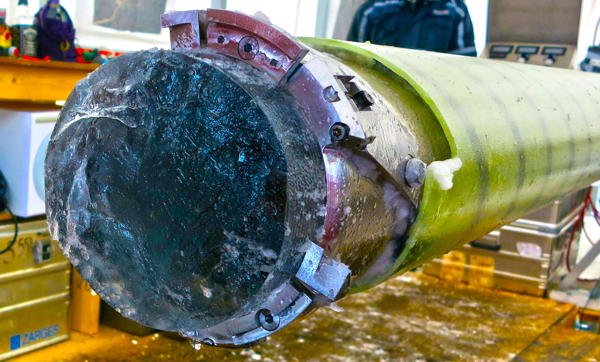
Research and training network on understanding Deep icE corE Proxies to Infer past antarctiC climatE dynamics
Researcher: Barbara Stenni, Length: 01/01/2021 - 31/12/2024, Grant to the UNIVE: € 239.899,68
DEEPICE is a project funded by the European Commission under the Horizon 2020 program (Marie Skłodowska-Curie Actions - Innovative Training Network) which involves 15 early stage researchers (ESR) who will be recruited as doctoral students within a network made up of 10 partner academic organizations from 10 European countries plus 8 institutions belonging to the academic and industrial world.
The study of climate change is a complex scientific subject and a long-term challenge for society. DEEPICE will provide a comprehensive educational program that includes a solid scientific understanding of climate processes and the necessary technical skills (statistics, specific instrumentation, climate modeling), transferable skills and a unique experience in synthesizing and communicating climate change data.
The PhD student selected at Ca 'Foscari will work on a research project (ESR4) which involves the development of laser ablation techniques to carry out high resolution non-destructive elemental analyses on ice cores.
The position is associated with the Ca’ Foscari PhD in Polar Sciences.
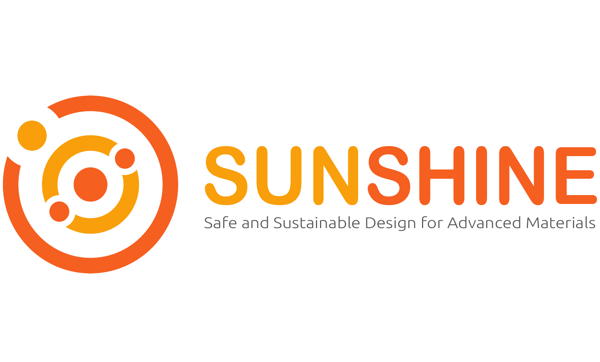
SUNSHINE - Safe and sUstainable by desigN Strategies for HIgh performance multi-component NanomatErials
Researcher: Antonio Marcomini, Length: 01/01/2021 - 31/12/2024, Grant to the UNIVE: € 401.625,00
The four-year SUNSHINE European project aims at developing and validating Safe by Sustainable Design (S&SbD) strategies for products that incorporate multi-component nanomaterials (there are already over 1000 on the market), to facilitate their implementation on an industrial scale. This will involve studying the potential impacts on both the synthesis processes and on the performance of the final product, as well as the potential risks to human health and the environment over the entire life cycle.
The S&SbD strategies, which will be based on methods such as doping, coating, surface passivation and functionalization of the selected products, will be validated through specific case studies, including the construction, agri-food, medical, energy and automotive sectors. The most effective strategies in reducing risks along the entire life cycle of the targeted products, while ensuring product performance and economic feasibility, will therefore be proposed for implementation on an industrial scale.
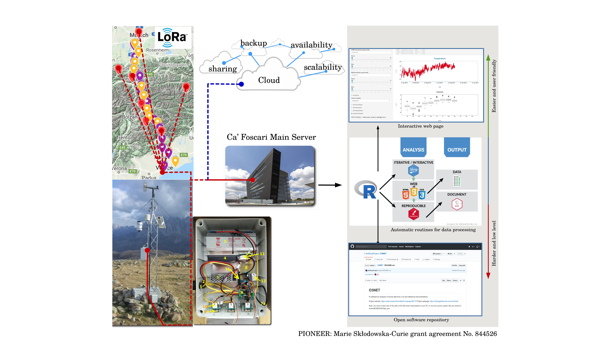
PIONEER - OPen WIreless OzoNe SEnsor NEtwoRk for smart environmental monitoring of remote areas: crossing the Alps along the 12th east meridian on the trail Munich Venice
Researcher: Federico Dallo, Length: 15/01/2021 - 14/01/2024, Grant to the UNIVE: € 251.002,56
The PIONEER project will develop innovative low-cost quantitative analytical methods for the assessment of air pollution in remote areas, focusing on tropospheric ozone. The aim of the project is the development of a low-cost sensor network for the study of transboundary transport phenomena of pollutants crossing the Eastern Alps. The project will be developed with the University of Berkeley and with the Institute of Atmospheric and Climate Sciences of the CNR of Bologna, under the supervision of Prof. Carlo Barbante at the Department of Environmental Sciences of the Ca' Foscari University of Venice.
Start date in 2020
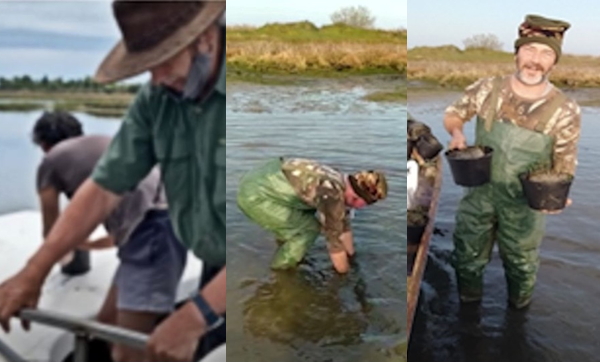
Seagrass Transplantation for Transitional Ecosystem Recovery
Researcher: Adriano Sfriso, Length: 01/12/2020 - 30/11/2025, Grant to the UNIVE: € 267.049,00
The project intends to contrast the regression of aquatic angiosperm meadows in the transition environments of the Po Delta, in the Mar Menor in Spain and in the Amvrakikos Lagoon in Greece, using the methodologies and experience acquired within the Life SeResto project. The objectives are:
1. Restore Habitat 1150* in 6 coastal lagoons by transplanting aquatic plants and restoring optimal circulation in one of these lagoons;
2. Contribute to achieving good environmental status by demonstrating the effectiveness of the proposed actions;
3. Quantify the value of ecosystem services provided by the presence of aquatic angiosperm;
4. To train future users and managers of these sites for their optimal management and for the transfer of the experience acquired to other similar sites.
The expected results will be obtained through manual transplants of small sods or individual rhizomes, then trusting in the plant colonization that occurs by dispersion of the seeds. In the presence of suitable conditions patches of plants that flow into structured meadows will form, thus triggering the ecological processes that take place in these environments.
The partnership, coordinated by the University of Ferrara, is vast and articulated and includes the Ca' Foscari University Venice, the Management Body for Parks and Biodiversity-Po Delta, the Delta Ecology Applied Institute srl, the Management Body for Parks and Biodiversity-Po Delta, the Comunidad Autonóma de la Región de Murcia (ES), the Asociación Empresarial Centro Tecnológico de la Energía y del Medio Ambiente de la Región de Murcia (ES), the Universidad de Murcia (ES), the Amvrakikos gulf-Lefkada Management Agency (GR) and the Hellenic Center for Marine Research (Gr).
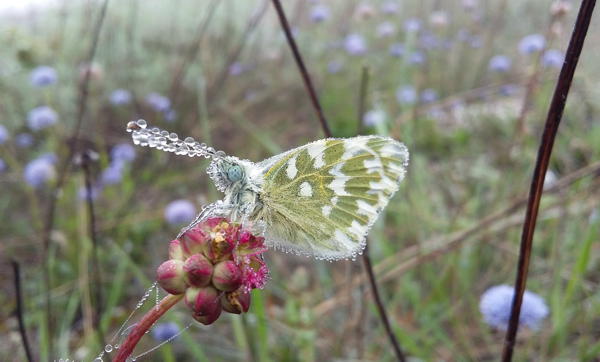
Actions for boosting pollination in rural and urban areas
Researcher: Gabriella Buffa, Length: 01/09/2020 - 31/03/2025, Grant to the UNIVE: € 607.034,00
A new environmental crisis threatens both natural ecosystems and human food security. This is the “pollinator crisis”: insects by transporting pollen allow 80% of plants to reproduce.
The Intergovernmental Science-Policy Platform on Biodiversity and Ecosystem Services (IPBES) estimates that over 40% of pollinating insects, mainly bees and butterflies, are at risk of extinction due to environmental degradation and the disappearance of their most important habitat: the flowering meadow.
The LIFE PollinAction - LIFE19 NAT / IT / 000848 project aims to provide solutions to this problem, through an innovative approach. The project will create 'green' infrastructures inspired and supported by nature. These are sustainable works and for the benefit of the resilience of the territories involved, including 6 municipalities that made their areas available, 11 farms, 2 beekeepers in Spain, 6 areas of extensive agriculture in Friuli-Venezia Giulia and the Mestre Passante highway.
The partnership, coordinated by Ca' Foscari, is extensive, articulated and includes the Veneto Region, the Autonomous Region of Friuli-Venezia Giulia, Venetian Motorway Concessions - CAV spa, the EcorNaturaSì spa group, Albatros srl, the Municipality of Caldogno (VI ), the SELC Cooperative, Veneto Agriculture, and the Centro de Investigación y Tecnología Agroalimentaria in Spain.
Last update: 17/04/2024
